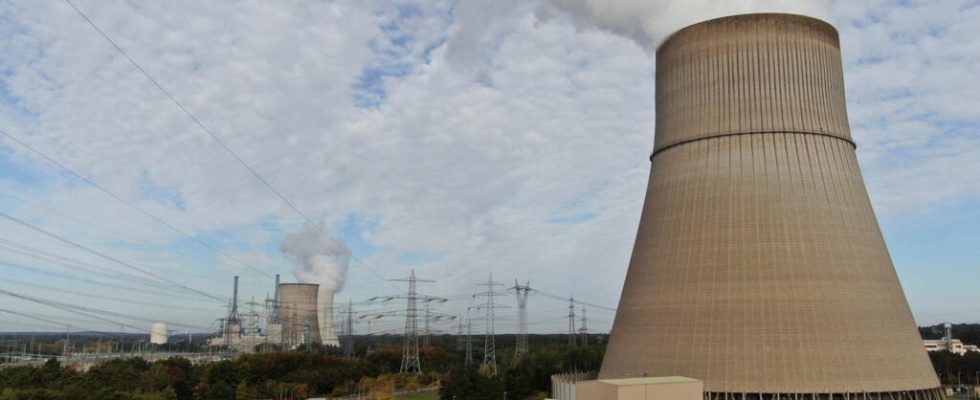A page of history is turning tomorrow in Germany. The last three nuclear reactors will be shut down. A three-and-a-half-month extension was granted to them last fall, but this time the famous slogan ” Atom Nein Danke “, “Nuclear no thank you”, becomes reality six decades later.
From our correspondent in Lingen,
In Lingen, near the border with the Netherlands where one of the three plants still in operation is located, on D-1, general indifference reigns. The mass is said, because since 2011, it was clear that the Emsland power station, the name of the region, would close at the end of 2022.
It is a recent installation inaugurated in 1988 which was part of the landscape without causing many waves. Small hostile demonstrations partly attracted activists from outside. The parents told the children that the cooling tower made the clouds to evoke the vapor emitted. The town of Lingen has benefited from nuclear with significant tax revenue.
In this city, the turning point has been initiated, it’s not a chopper that falls tomorrow. The plant will have to be closely monitored and it will take years to dismantle it, which saves jobs. And Lingen wants to keep its energy know-how, because gas and oil are extracted there. From now on, the nearby North Sea wind farms must deliver electricity which will be used to manufacture hydrogen with a higher production in the long term than that of today’s nuclear power plant. But despite this serenity, many, as elsewhere in Germany, think that we could have left the powerful reactor running longer.
Abandoning nuclear power in favor of renewable energies
Germany is abandoning nuclear power while several other countries are developing this source of energy. It should be understood that the opposition to nuclear has a long history in Germany with important hostile movements. Numerous demonstrations against power plants and waste transport have marked the country’s history. With the coming to power of the left-wing government combining Social Democrats and Greens under the leadership of Gerhard Schröder in 1998, the exit from nuclear power was negotiated with industrialists.
At the start of the last decade, the Merkel government pursued a zigzag policy. It extends the use of power plants before a 180 degree turn after the Fukushima disaster in 2011. Several old power plants must close quickly. For the others, a schedule provides for regular closures until the end of 2022. three and a half months will therefore have been added on arrival.
Last year, nuclear produced 6% of Germany’s electricity. The manufacturers who have been compensated have turned the page and are now betting on the development of renewable energiesalmost half of German electricity last year.
An abandonment of nuclear power which has sparked many debates
This abandonment of nuclear power was planned for a long time. But until the end, discussions accompanied him. The war in Ukraine and its consequences for German energy policy explain these debates. The cessation of Russian gas deliveries has forced Germany to source supplies elsewhere, but also to resort even more to coal, which is more polluting, to produce electricity.
Why not prolong the use of nuclear energy to reduce these harmful emissions for the environment? This is what the Christian Democrats are asking for even if their ex-Chancellor, Angela Merkel, had accelerated the timetable. And even within the ruling coalition, the Liberals regret not having been able to impose an extension.
Economic circles were also in favor of it, fearing an increase in energy prices. And two-thirds of Germans support this option.
►Read also : Nuclear, a controversial asset of the energy transition
